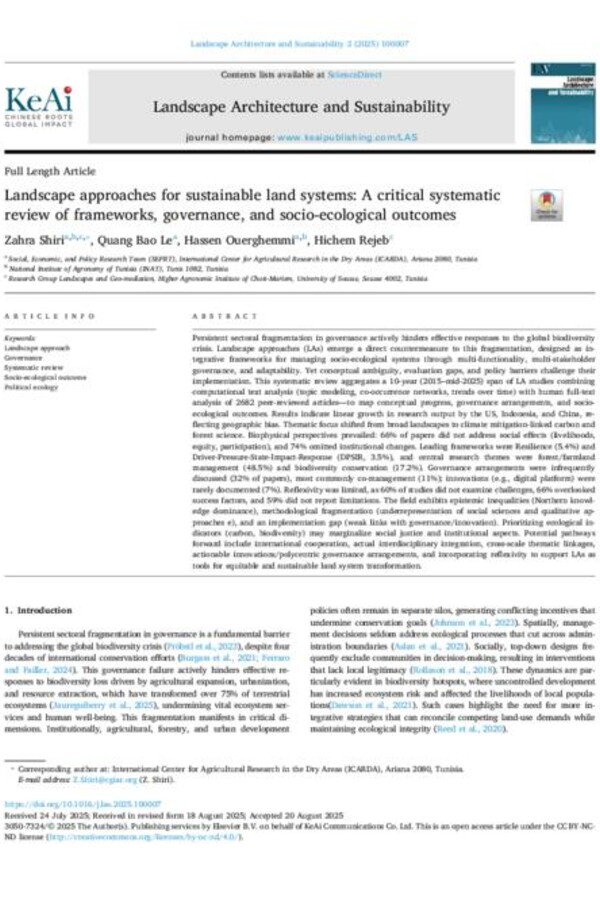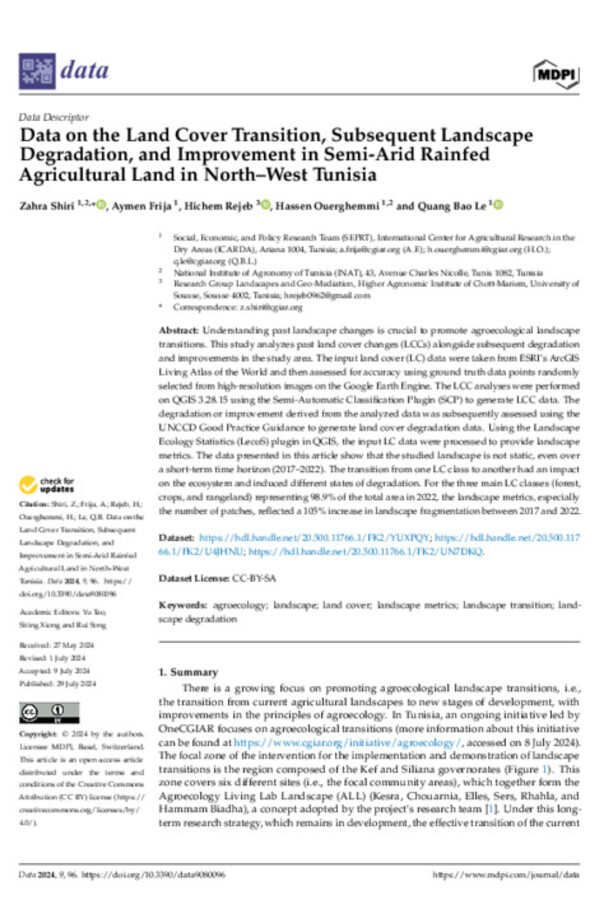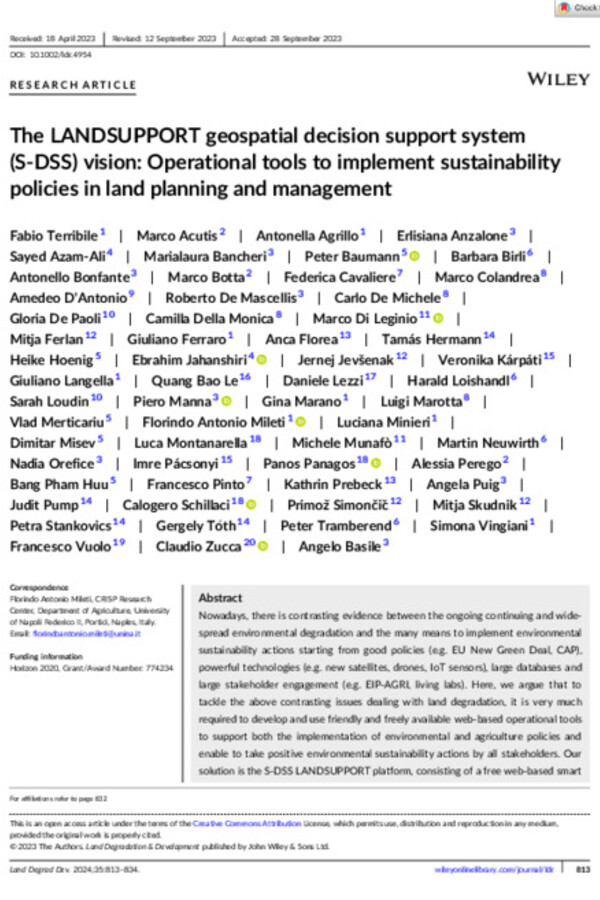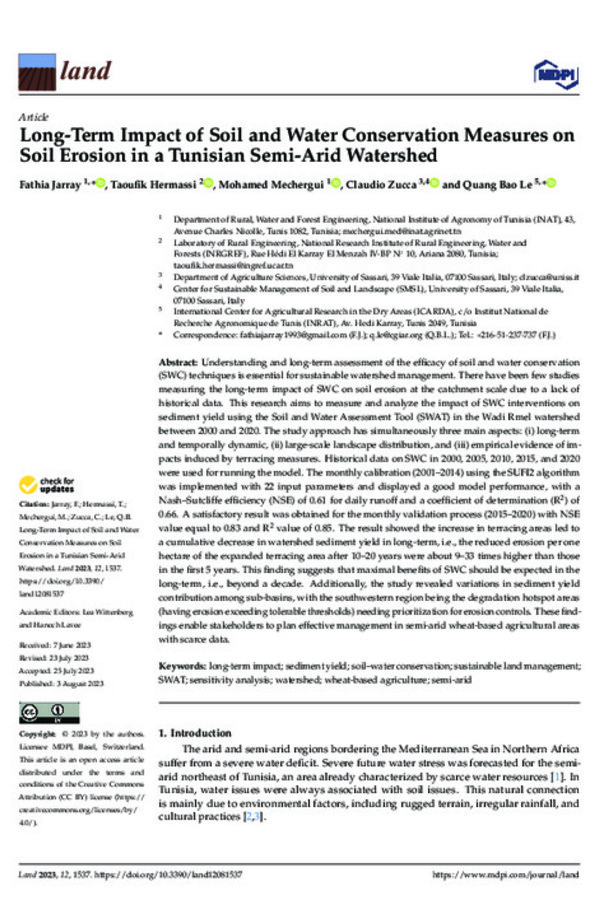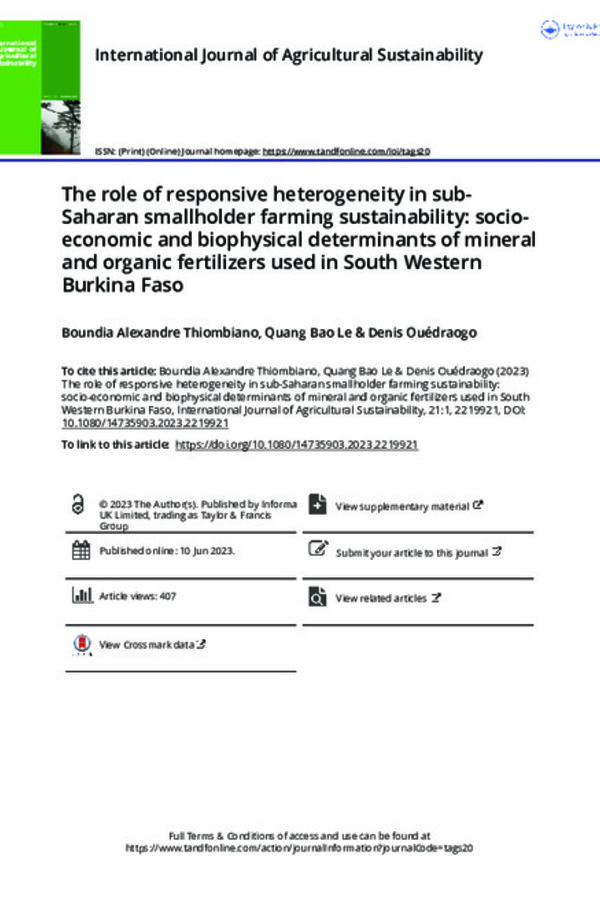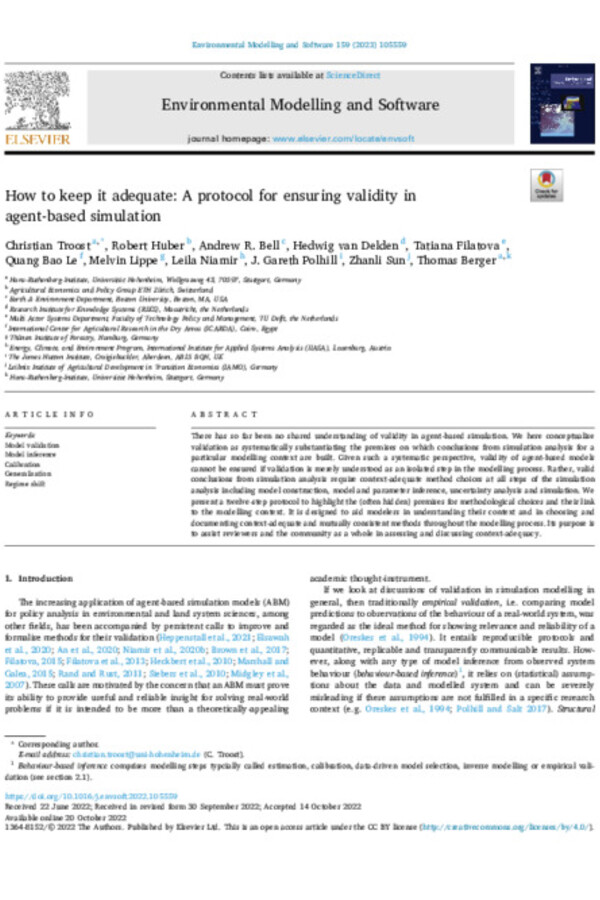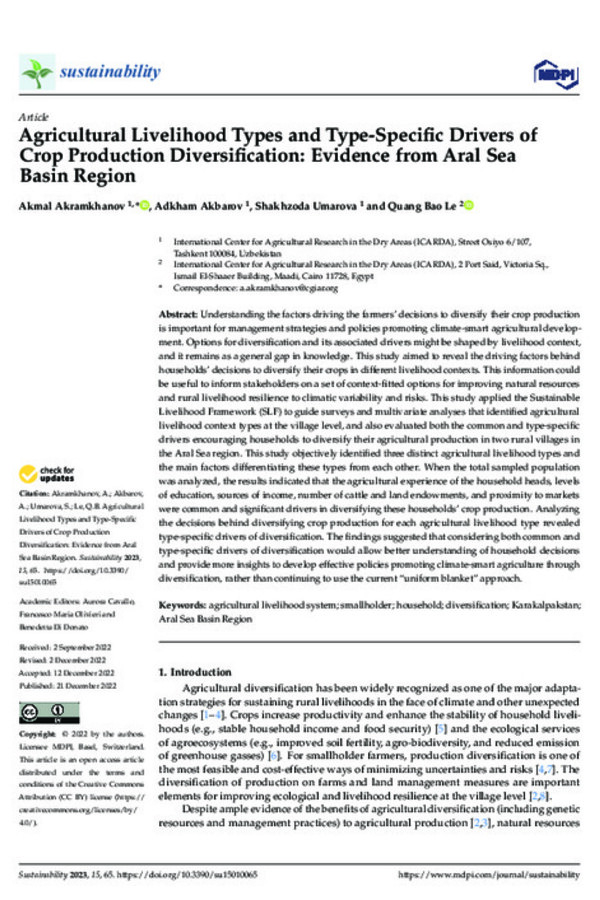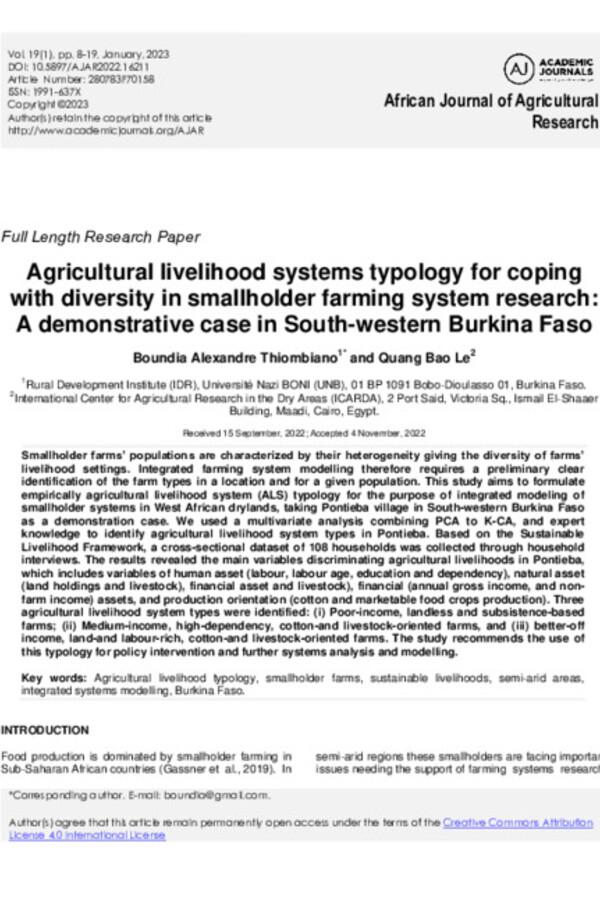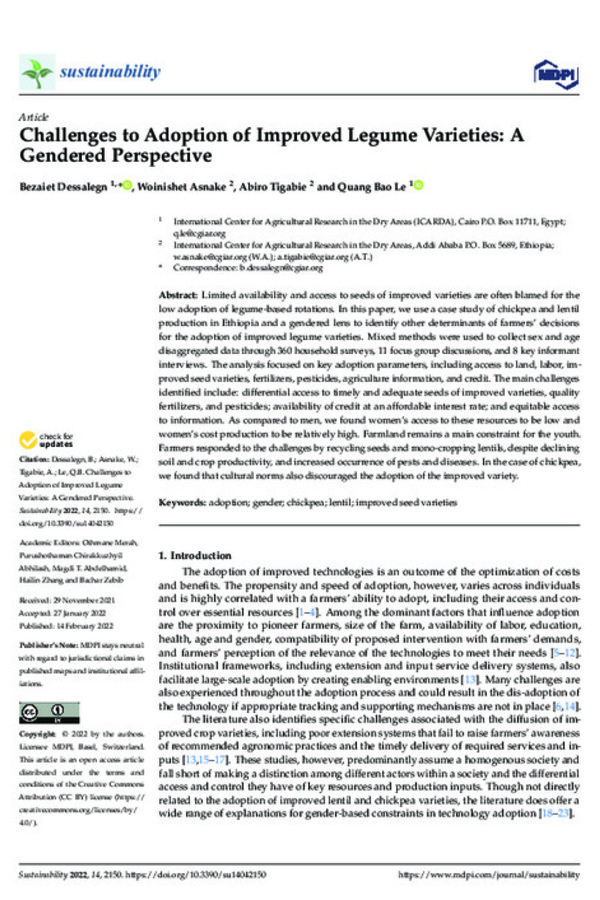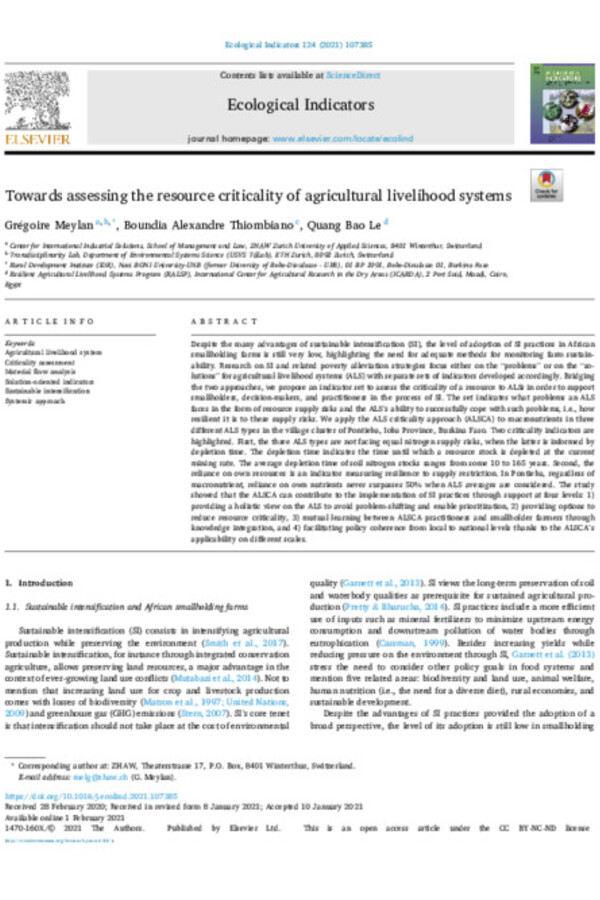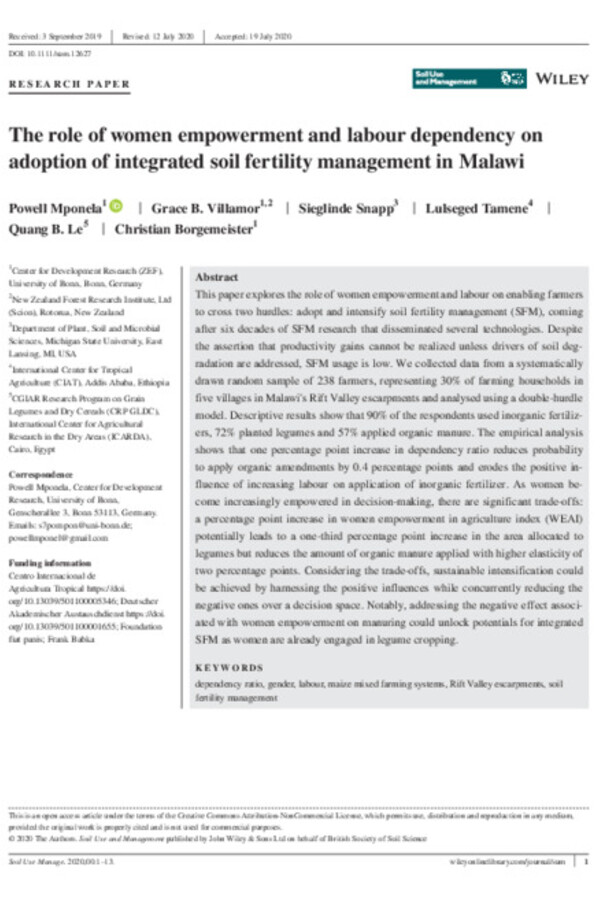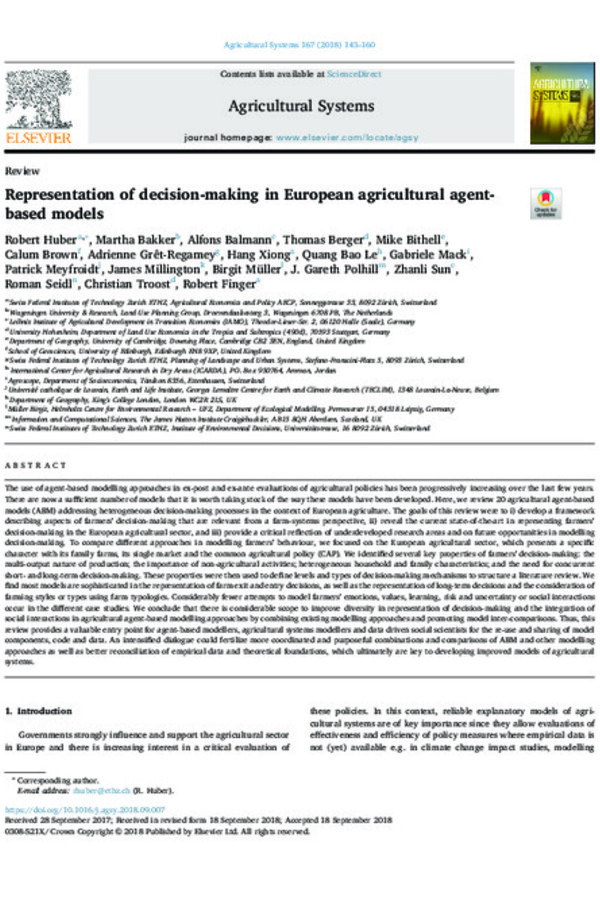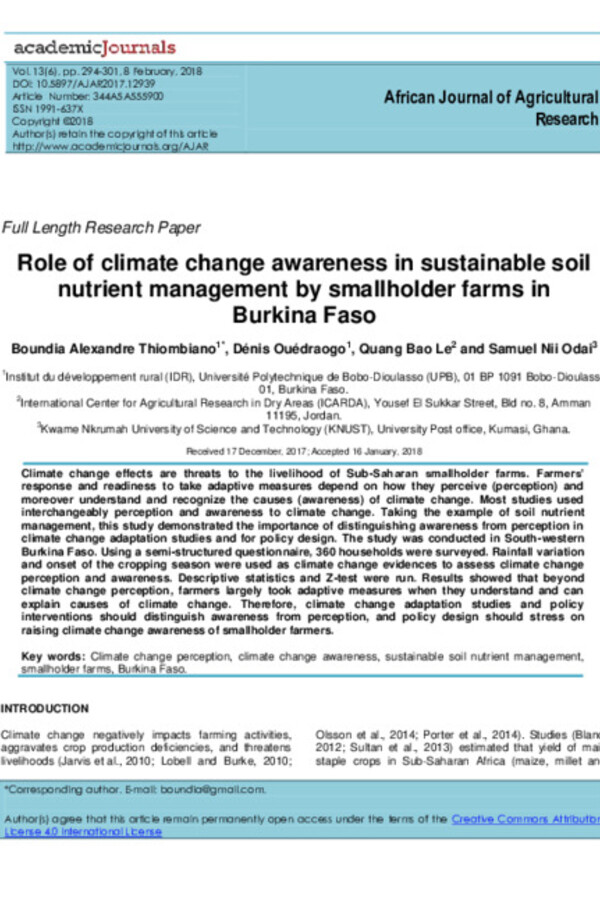
Quang Bao Le is an agricultural livelihood systems expert with more than 25 years-experience. His research focuses on the development and application of human-environment system methodologies to integrate multi-disciplinary scientific expertise with societal decision-making processes to foster sustainable agricultural livelihood systems.
Le was recruited by the CGIAR Research Program on Dryland Systems in 2015 to identify critical leverage points and processes for improving food security, ecosystem services integrity, and livelihood resilience in the face of global changes. He conducts regional, continental and global assessments of land degradation and improvement, and related contextual typologies. His research also includes the development of methodologies for the optimal selection of representative study sites and households across global drylands given their high contextual complexity, and the out- and up-scaling of site-specific findings toward development outcomes.
Before joining the Dryland Systems program, Le was a senior scientist at the Department of Environmental Systems Science, Swiss Federal Institute of Technology (ETH) Zurich. He began his career as a Lecturer at Hue University.
Le has authored more than 60 peer-reviewed publications and has supervised the dissertations of more than 12 graduate students from Africa, Asia, Europe, North and Latin America. He is serving on the editorial boards of three refereed international journals (Nutrient Cycling in Agroecosystems, Frontiers - Agroecology and Land Use Systems, and Change and Adaptation in Socio-Ecological Systems).
Le received a Ph.D. in geography, ecology and natural resources management from the University of Bonn in Germany, where he also completed his postdoctoral research. He also holds a master’s degree in environmental science from Chiang Mai University, Thailand.

